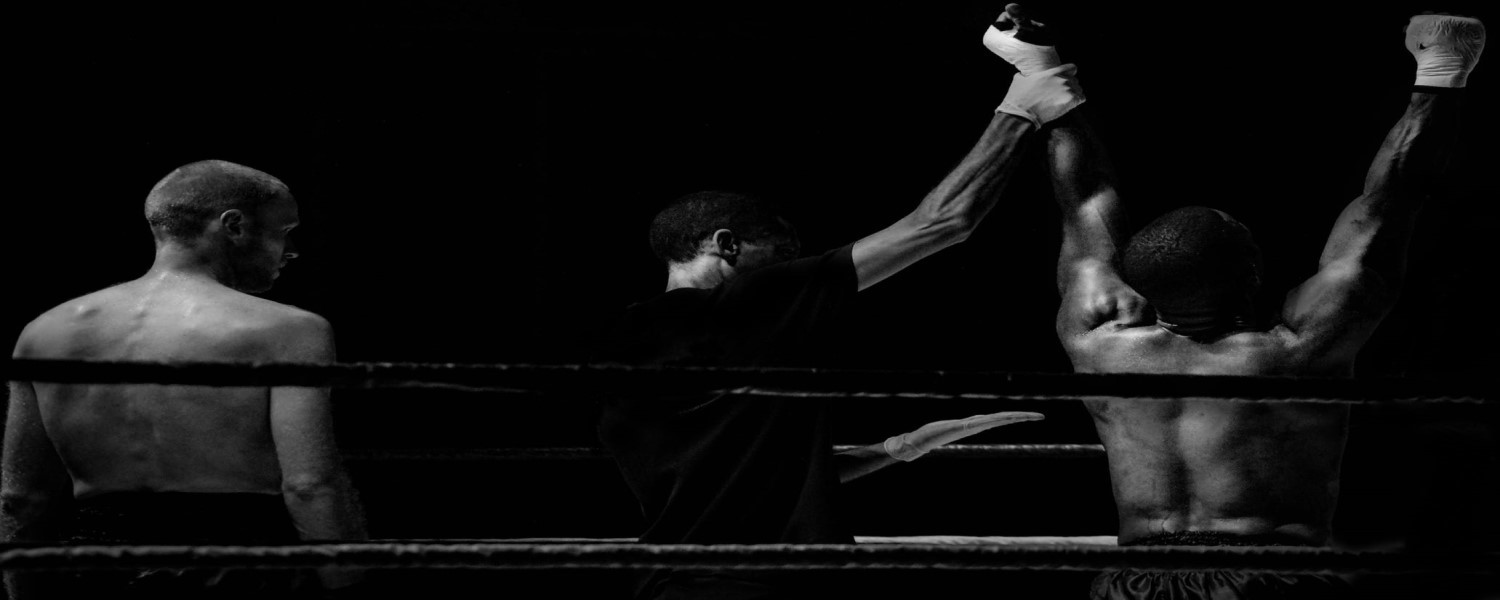This is How Champions Think: 11 Secrets to Their Success
Let me ask you a question…
Do you think like a champion?
Wait! Before you answer, it is probably a good idea to understand what makes a champion, and more specifically to understand how champions think. And there is likely no better person to look to in order to get into the head of a champion than world-renowned sports psychologist Dr. Bob Rotella. I recently read his book How Champions Think in Sports and in Life and in this post will share some of the lessons I took away.
If anyone would know how champions think it would be Rotella. Rotella has worked with a who’s who of professional, Olympic, and NCAA athletes in almost every sport imaginable. From Lebron James to golfers Chip Beck, David Duval, Jim Furyk and Pat Bradley to legendary basketball coach John Calipari – to name just a few.

What was amazing to me when reading the book was how applicable his lessons are to people outside of sports who are interested in self-improvement.
With that in mind, let’s explore 11 of the biggest lessons I took away from Dr. Rotella’s amazing book:
(1) Champions think optimistically
Whether they are naturally that way or it is learned, champions realize they cannot be successful unless they are optimistic. While optimism may not guarantee success, what is true is that negative thinking will almost always guarantee failure!
Make it actionable: One-way Rotella recommends is to seek out role models who have achieved great things to prove that it is possible to achieve your dreams. For example, no one had run a sub-4-minute mile until Roger Bannister did it in 1954. But within a few years, a slew of runners broke through the previously unattainable barrier!
(2) Champions have a confident self-image
Rotella quotes Dr. William James, a psychologist from Harvard who was credited with teaching the first psychology class in the U.S. who said, “People tend to become what they think about themselves.” He shares a story on how golfing great Jack Nicklaus denied ever 3-putting the last hole of a major tournament, even though he had. The point being is that it happened, he learned from it, then he put it out of his mind.
Make it actionable: Think and remember in ways that will help you achieve and maintain your confident self-image. If something bad happens, learn from it and move on – don’t ever let something beat you twice!
(3) Champions believe in their own talent
In evaluating the talent of athletes, many people put too much focus on measurable traits such as height, speed, or strength. However, as Rotella points out, “We know that some of the most important traits, the character traits, are internal and that we can influence them in ourselves. Perseverance, for example, is an essential component of any exceptional person’s talent. And anyone can persevere if he wants it badly enough.” 1
Make it actionable: Figure out what traits of yours you can improve upon that have nothing to do with genetic inheritance and work diligently on improving them every day.
(4) Champions take the commitments they make to themselves very seriously
One of the examples he uses here is how gyms are crowded in early January as people make commitments to get fit as New Year’s resolutions. The problem is that the majority of them have stopped come April. Champions take pride in doing things that average people will not do – they value persistence.
Make it actionable: As Rotella says, “Devise an improvement plan and commit yourself to it.” 1
(5) Champions have dreams, but they also go beyond dreaming
This is one that really resonated with me. According to Rotella, champions are focused on the process rather than the outcome. They have “committed themselves to a process that will improve their games and sustained that commitment for a long time.” 1
Make it actionable: Embrace the grind and work hard every day. Be careful when setting goals as they can oftentimes be limiting. Rotella gave an example of someone who has a goal of $150,000 per year in commissions. While that person may very well come close to that goal, he points out that you “rarely see anyone who exceeds the goal he’s set for himself.” 1

(6) Champions are laser-focused
Champions are single-minded and have a laser-focus in everything they do. To outsiders, single-minded people may seem obsessed but to the champion, they are just doing what they need to do to succeed.
Make it actionable: Be laser-focused in whatever you do. This is a tough one for most people as these types of people rarely have balanced lives. While it is a necessary factor, you will need to decide for yourself if reaching your goals are worth sacrificing other areas of your life.
(7) Champions perceive and react to events differently
Champions believe in themselves and look at setbacks differently than most people. Instead of getting down when they have a setback, they instead take something positive that came of it and latch onto that instead.
Make it actionable: Understand that setbacks are a learning experience. By persisting and being resilient you will improve which will cause you to experience success which reinforces your optimism, confidence, and respect for your own talent which Rotella calls “the virtuous cycle.” 1
(8) Champions are good at self-evaluation
They are rarely affected or influenced by outside evaluations. They create their own standards and hold themselves accountable to those. As Rotella says, “their standards have much more to do with the process than the outcome. They know that any single outcome can be influenced by others, and by luck.” 1
Make it actionable: Create a rigorous process that sets a high standard for yourself and stick to it.
(9) Champions not only work hard, but they also work smart
He told a story about golfer Ben Hogan who used unconventional practice techniques to make his practices more realistic to what he would experience in a tournament.
Make it actionable: The idea here is to work hard but to be strategic and efficient about what you are doing. Taking some time to sit back and think every day will ensure you are always keeping your eye on the bigger picture.
(10) Champions know when to be patient and when to be impatient
Champions are impatient with the limits placed upon them by others. On the other hand, champions are patient when it comes to the process of self-improvement, it takes time to improve.
Make it actionable: Realize that there are times when you need to be patient and times where it is ok to be impatient. Don’t let anyone put limits on what you can achieve and don’t put a limit on what others can achieve. Realize that self-improvement can take time and that you need to be patient.
(11) Champions surround themselves with the right people
A champion surrounds himself or herself with people who not only support and encourage them but also give them a kick in the ass or tell them what they need to hear when needed.
Make it actionable: Understand that you cannot be successful alone. You need good people around you whom you not only select carefully but who you treat right.
So, now that you know understand…
…how champions think, let me ask you a question…
Do you think like a champion?
Until next time, keep thinking like a champion and as always…PYMFP!
–Rick
Use It or Lose It – How Champions Think
Some of the ways for how champions think are:
(1) Think optimistically.
(2) Have a confident self-image.
(3) Believe in your own talent.
(4) Take the commitments you make to yourself very seriously.
(5) Have dreams, but embrace the grind.
(6) Be laser-focused.
(7) Understand that setbacks are a learning experience.
(8) Get good at self-evaluation.
(9) Don’t just work hard, work smart.
(10) Know when to be patient and when to be impatient.
(11) Surround yourself with the right people.

When to Use It:
Use these concepts from how champions think whenever necessary in your life.
What Do You Think?
Do you think like a champion? Do any of Rotella’s points resonate with you more than others? Please share in the comments below!
If you enjoyed this post, it would mean the world to us if you shared it with people you care about via any of the social media platforms below!
Popular Previous Posts:
Thank God It’s Monday! This is How to Plan Your Week
19 Fascinating Latin Phrases About Life You Need to Know
Living Your Personal Legend: 9 Lessons from the Alchemist
4 Easy Ways for How to Break the Ice with Strangers
How to Best Use These 3 Types of Power
References
1 Rotella, Dr. Bob, (2016). How Champions Think: In Sports and In Life. New York, NY: Simon & Schuster


Having long ago abandoned any further athletic pursuits, and having been retired coming up on 10 years, I cannot now relate to all 11 of your main points. These four seem to be most applicable to me currently.
(1) The power of positive thinking. Life becomes so much easier when you are optimistic regarding your situation.
(2) I must project self confidence, especially when giving my presentations and seminars.
(3) I understand my capabilities, and by the same reasoning process, I know my limitations.
(11) I have the right person right now setting on the right side of the couch right beside me.
Life is good.
Hi Dave, thanks for the reflection and great points. I especially like your thoughts on #3, definitely need to know our limitations. Be good! Rick
These are excellent points. Most negatives can be turned around into positive transformations. As you stated, you need to have a vision of what you wish to achieve. Combine this with a good work ethic and people who are positive and helpful, your dreams can be achìeved. Thanks for sharing.
Hi Eileen, Totally agreed. great advice. Thanks, Rick